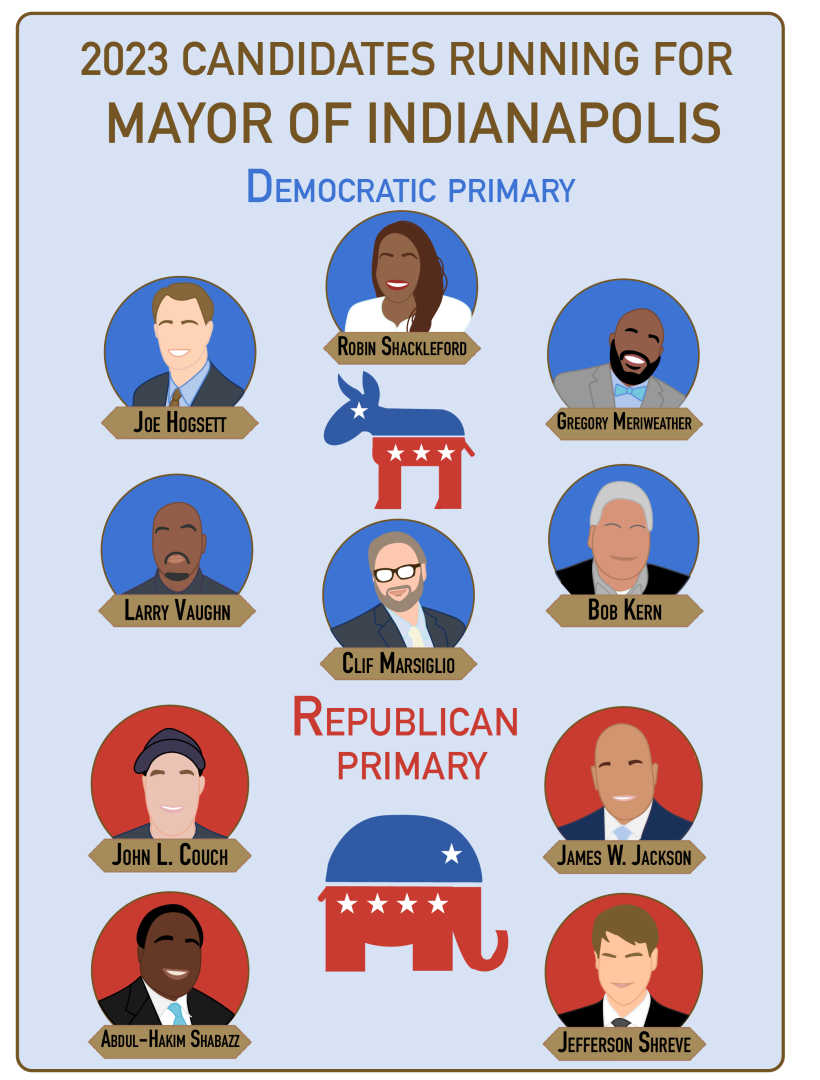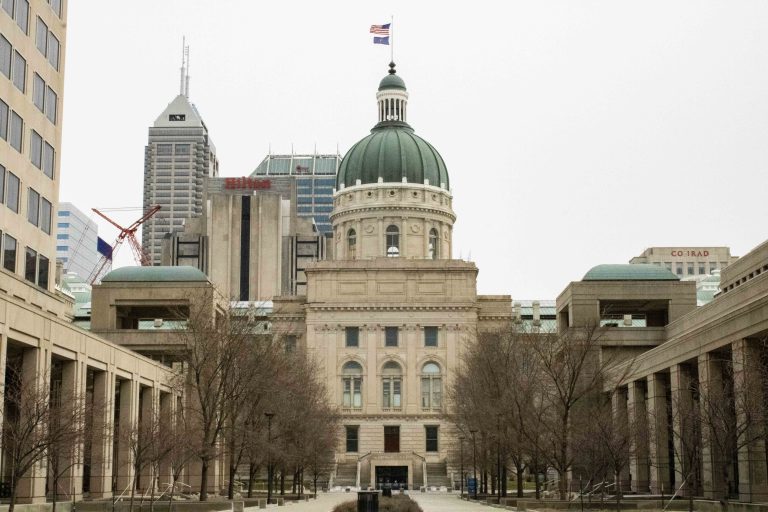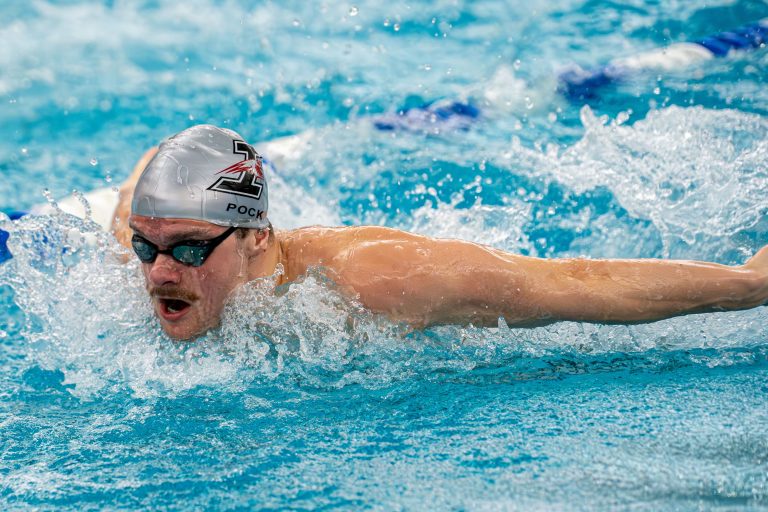The Indianapolis mayoral election season is underway, and with the primaries coming in early May, there are several candidates looking to obtain the mayoral seat. According to Ballotpedia, there are 10 people running for mayor in the 2023 election: six Democratic candidates and four Republican candidates.
According to the University of Indianapolis Department of History & Political Science Chair, Professor of History and Director of the Institute of Civic Leadership and Mayoral Archives Ted Frantz, UIndy has archived mayoral information dating back to Richard Lugar, who was Indianapolis’ mayor in 1967. Lugar had a close working relationship with then UIndy President Gene E. Sease, which led to the beginning of the archival of Indianapolis mayoral papers and items relating to Indianapolis history. The collection of mayoral term information and Indianapolis historical records was developed and formed the Institute for Civic Leadership, according to Frantz.
“It was like one of the things that President Manuel inherited, and it was like, ‘What unique assets do we have at this institution?’ Frantz said. “That was one of them. So the Institute was set up to sort of promote the materials that we have in conjunction with those.”
The key democratic candidates to pay attention to are Mayor Joe Hogsett, as he is the incumbent having served two terms, and Indiana state Rep. Robin Shackleford, according to Associate Professor of Political Science Laura Merrifield Wilson. Shackleford is a legislator representing the city’s near east side according to Wilson, and, if elected, would be the first Black woman to be mayor of Indianapolis. Hogsett is a prolific fundraiser and is a well known commodity in the city with the name recognition, she said.

For the Republican candidates, Wilson said that the two strongest contenders for the mayoral seat are Abdul-Hakim Shabazz, a local journalist and adjunct professor at UIndy, and Jefferson Shreve, a well known philanthropist and local Southside Indy businessman. Shabazz is a prominent figure in the community and Shreve’s time as an Indianapolis City Council member allows for public recognition as well, according to Wilson.
According to Frantz, not long ago, Indianapolis was a Republican city and Democrats struggled to find candidates who could be competitive against them. But for this year’s election, Frantz said the situation is not the same. It has been very hard to find a Republican candidate who will stand to run for office in Indianapolis for the past few elections, according to Frantz.
“…You’ve got an incumbent…Joe Hogsett,” Frantz said. “And he’s definitely the presumptive favorite, both in terms of because he’s the incumbent and the amount of money he has backing him. He’d be only the second mayor in modern Indianapolis to have more than two terms if he’s successful in that reelection attempt.”
To prepare for the primaries, Wilson said that students need to make sure that they are registered to vote in Indiana. Voters must be registered 29 days before the election and can go to IndianaVoters.com to view their registration status, according to Wilson. Students at UIndy can change their voter registration to Indianapolis, she said. She said she recommends students to vote on their college campus using their UIndy address because students are in school nine to 10 months out of the year. Wilson also said it is important for students to make sure they are registered to vote and learn about the candidates if they vote on campus.
“These are competitive primaries, and they’re crowded, quite frankly…,” Wilson said. “Either party has multiple options, so they want to learn more about the candidates and what they stand for, and how those issues and positions align with their own.”







